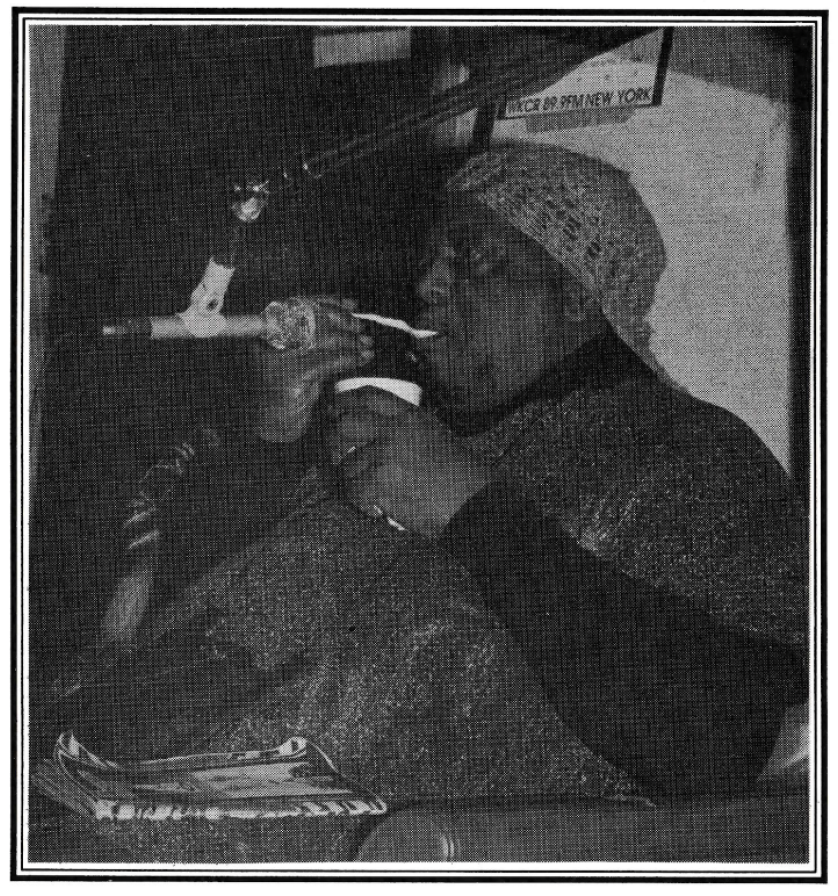
In remembrance of the legendary Kentucky folk singer-songwriter Jean Ritchie, who passed away this Monday at the age of 92, this week’s Hobo’s Lullaby will be dedicated to her life and her music. Tune in from 4:00 to 6:00 p.m. this Saturday, June 6th to listen to some of the music that helped to ignite the folk revival of the mid-20th century and to celebrate the spirit of an incredibly influential folk musician.
Ritchie was born in 1922 in Viper, Kentucky, into a family that considered music extremely important. In addition to singing as a means of entertainment, they had songs to accompany nearly all of their activities, from sweeping to churning to working in the fields.
She graduated high school in Viper and enrolled in Cumberland Junior College in Williamsburg, Kentucky. She went on to graduate Phi Beta Kappa with a B.A. in social work from the University of Kentucky in Lexington in 1946. At college she participated in the glee club and choir and learned to play piano.
After graduating she got a job as a social worker at the Henry Street Settlement, where she taught music to children. There she befriended Alan Lomax, who recorded her extensively for the Library of Congress. She joined the New York folksong scene and met Lead Belly, Pete Seeger, and Oscar Brand. In 1948 she shared the stage with The Weavers, Woody Guthrie, and Betty Sanders at the Spring Fever Hootenanny and by October 1949 was a regular guest on Oscar Brand's Folksong Festival radio show on WNYC.
Ritchie met her husband, George Pickow, in 1948 at a square dance at the Henry Street Settlement. They married in 1950 and had two sons.
Ritchie preferred to sing without instrumental accompaniment, but occasionally she also accompanied herself on autoharp, guitar, or handmade plucked lap or mountain dulcimer. Her father had played this instrument but forbade his children to touch it. At the age of four or five, however, Jean defied this prohibition and picked out "Go Tell Aunt Rhody". By 1949 Ritchie's playing of this distinctive instrument had become a hallmark of her style.
Her first solo album of family songs was released in 1952, but it was her record None But One, winner of the critics’ award in Rolling Stone in 1977, which brought her acoustic sound to a new, younger audience. In 2003, two albums of ballads first issued in 1961 were released on a single CD by Smithsonian Folkways. Ritchie’s stunning, bell-like singing, recorded when she was at the height of her powers, was a revelation to another generation of folk music enthusiasts.
In 2002, Ritchie received a National Endowment for the Arts heritage fellowship, and the same year was inducted into the Kentucky Music Hall of Fame. She continued to perform until 2009, when she suffered a stroke. A double tribute album, Dear Jean: Artists Celebrate Jean Ritchie (2014), featured Pete Seeger and Judy Collins.
Ritchie passed away in her home in Berea, Kentucky. Her husband George Pickow died in 2010. Ritchie is survived by their sons, Peter and Jonathan, who both performed and recorded with their mother.
